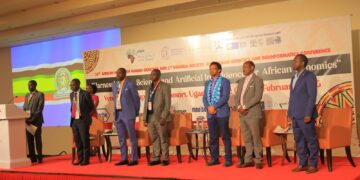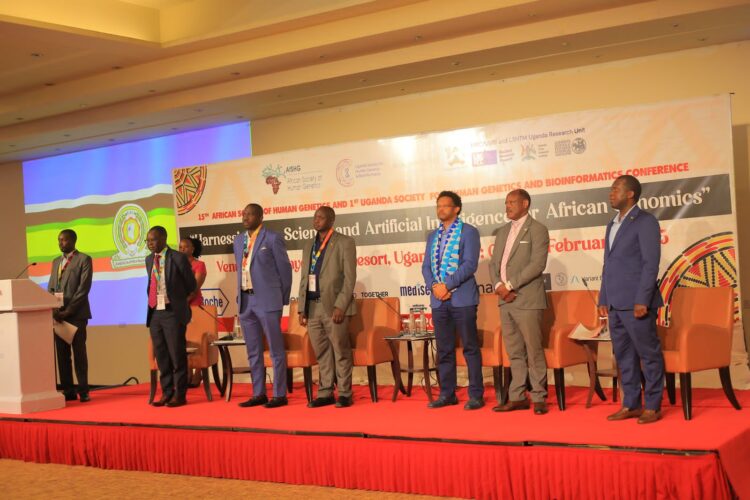By Leonard Kamugisha Akida and Zawadi Nanyonga,
KAMPALA
African Society of Human Genetics (AfSHG) has announced KidneyGen Africa initiative to advance genomics researcha and training in kidney disease.The initiative by AfSHG and partners including Makerere University aims to fill critical capacity gaps in African genomics by building a strong network of experts and resources for large-scale genomic analysis.
According to the organizers, the project is expected to revolutionize kidney disease research, improve early diagnosis, enhance strategies and contribute to prevention efforts across the continent.
Kidney disease is one of the growing public health burden in Africa, and research on its genetic causes remains limited. The project will according to the organizers launch during the 15th AfSHG and 1st Uganda Society for Human Genetics and Bioinformatics (USHGB) conference ongoing at Speke Resort Munyonyo.
The conference started on February 3rd and will close on February 7th, 2025, under the theme; “Harnessing Data Science and Artificial Intelligence for African Genomics.”
Over 300 leading scientists, policymakers, and industry experts from across Africa and beyond. These will forge new partnerships and reinforce existing collaborations that will shape the future of genomics research on the continent.
“The key to advancing genomics research in Africa lies in building strong, sustainable collaborations,” said Prof. Moffat Nyirenda, Director of the MRC/UVRI and LSHTM Uganda Research Unit.
“The conference provides a unique opportunity for researchers, institutions and policymakers to come together and drive innovation through collective expertise and shared resources.” he added.
Additionally, Prof. Segun Fatumo, Director of KidneyGenAfrica and chair of the conference called for harnessing of Artificial Intelligence (AI) and advanced data science techniques to uncover genetic factors contributing to the disease.
“The conference is more than an exchange of ideas; it is a call to action for scientists, policymakers and industry experts to harness artificial intelligence (AI) to unlock Africa’s genomic potential and drive medical treatments that are effective for everyone irrespective of their ethnic background,” Prof. Fatumo said.








































